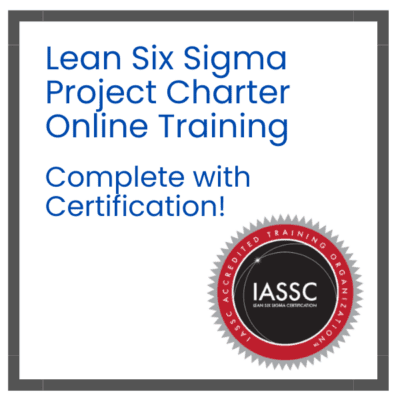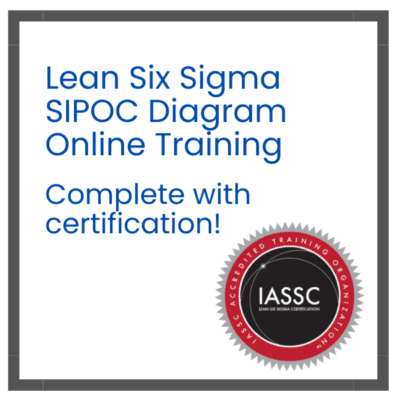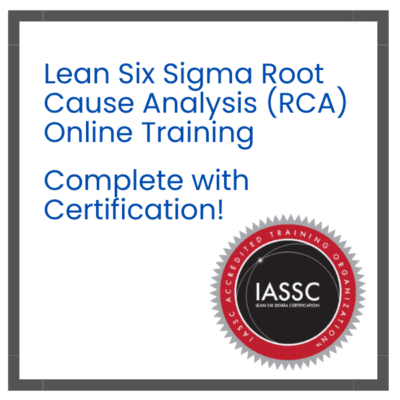Table of contents
Lean Six Sigma Black Belt (LSSBB) Certification
Lean Six Sigma Black Belt (meaning: LSSBB) Certification is a professional credential designed to indicate high-level expertise and requirements in process improvement methods. This certification combines Six Sigma and Lean principles to improve efficiency, eliminate waste and reduce defects. Black Belt-certified professionals have skills in project management and statistical analysis. They also have the ability to lead teams. They manage complex projects that require significant process improvements, cost reductions, and higher customer satisfaction. This certification is only possible after completing rigorous training.
What Can You Expect From The Lean Six Sigma Black Belt Certification?
Lean Six Six Sigma Black Belt (meaning: LSSBB) Certification requires that candidates have a thorough understanding of process improvement methods. Candidates will receive extensive training in statistical analysis techniques, project leadership, and other essential skills. Candidates must pass a series of exams to demonstrate proficiency in Lean Six Sigma applied in real-world situations. Candidates will be expected to manage and lead complex process improvement projects that result in significant cost savings and customer satisfaction. Candidates will be able to use their knowledge and skills to drive continuous improvement in their workplaces and achieve results.
Benefits of the LSSBB Certification

Lean Six Sigma Black Belt (meaning: LSSBB) Certification has many benefits and requirements for both individuals and companies. These are just a few of the many benefits that LSSBB certification offers:
- Increased knowledge and skills in process improvement methods, including statistical analysis, project administration, and team leadership.
- The high demand for process improvement professionals across various industries has led to increased career opportunities and greater earning potential.
- Increased confidence in the leadership of complex process improvement projects, and the ability to deliver significant results.
- Increased efficiency and effectiveness of the organization by eliminating waste and reducing defects and improving overall quality.
- Customer loyalty and satisfaction is enhanced by products and services that exceed or meet customer expectations.
- Employee engagement and morale are improved by including them in process improvement efforts and showing a commitment for continuous improvement.
- You can be competitive in the market by distinguishing your organization as being committed to quality improvement and process improvement.
How to Prepare for the Exam
It takes dedication and a structured approach to prepare for the Lean Six Sigma Black Belt Certification exam and its requirements. Here are some tips to help you prepare for the exam.
- Accreditation training program covering Lean Six Sigma methodology, statistical analysis tools, and techniques.
- Learn the DMAIC process and how it can be applied to process improvement projects.
- Use statistical analysis tools and techniques in real-world situations.
- Exam content outline: Identify areas that need further study.
- To identify areas that need improvement, take practice tests and then review the results.
- You can join study groups, or get the guidance of mentors who have already earned certification.
- To ensure that you are ready for the exam, review and comprehend the scenarios and case studies provided by the certification body.

Four Reasons to Become a Lean Six Sigma Black Belt
1. You’ll better understand and appreciate your field’s relevant concepts and tools.
LSS Black Belt professionals can help with process problems in organizations. They are experts at analyzing and implementing changes to reduce waste, improve efficiency, and increase productivity. The LSS method aims to eliminate production waste by using the following tools within a company.
- DMAIC Stands for define, measure and analyze, improve, and control. DMAIC is a six-step Six Sigma process which improves quality and processes efficiencies.
- 5S Lean methodology that creates a safe, clean, and organized work environment.
- Seven wastes This tool is another Lean method that focuses on preventing overproduction, and taking the necessary steps in order to create a product without as much waste.
- Value stream mapping VSM: This visual tool allows professionals to map out production routes and show how they should flow.
- Visual workplace A visual report of the current operational data. This is to ensure that both human and machine performance are reliable, consistent, and secure.
2. You’ll be able to lead an organization’s quality improvement and Lean initiatives.
A professional who is able to implement workplace improvement programs is called a Black Belt. Black Belts are able to identify and analyze problems and ask the right questions. They are often called casual thinkers and constantly consider cause-and-effect relationships. Black Belts can see the flaws in current organizational approaches, whether it’s low-quality products, late deliveries, or medical errors.
Black Belts are able to improve their processes by implementing DMAIC. This will help reduce and eliminate barriers and provide efficient solutions. Through participation in a certificate program professionals will be able recognize flaws in organizations’ quality improvement initiatives through the use of the DMAIC process.
3. You’ll stand out when you are looking for a promotion or a new job.
Five levels of Lean Six Sigma training demonstrate how hard professionals have worked to improve their LSS skills and quality. Employers are aware that Black Belts have applied their knowledge of LSS in their fields and prompted organizational change to attain the highest-level belt. The certificate is based on practical experiences such as:
- Various improvement projects in their functional areas.
- Working in the same LSS job for around three years
- Select projects are being assisted by Helping Champions, the upper-level managers responsible for LSS deployment
- Assisting, mentoring and preparing several Green Belts
Black Belts are able to understand the customer and have passion about their work. This makes them capable leaders with excellent communication and project management skills. Black Belts are a great choice for hiring managers because of their technical skills and ability to work in teams and as leaders with a positive outlook.
4. You’ll learn and complete a project that applies to real-world situations.
Black Belt certificate programs often include required projects that allow learners the opportunity to apply DMAIC in real-time to solve a company issue. This can be a great way to build a portfolio that shows the learner’s achievements and successes in implementing LSS within their company.
Black Belt training enables learners to choose from four types of projects: internal customers, external customers, Six Sigma propagation, and the corporation’s bottom-line. Learning partners with an employer or non-profit to execute a project that is appropriate using the tools and concepts they have learned.
Are you ready to be Lean Six Sigma Black Belt Certified?
We can help! Leave us a comment down below.



















